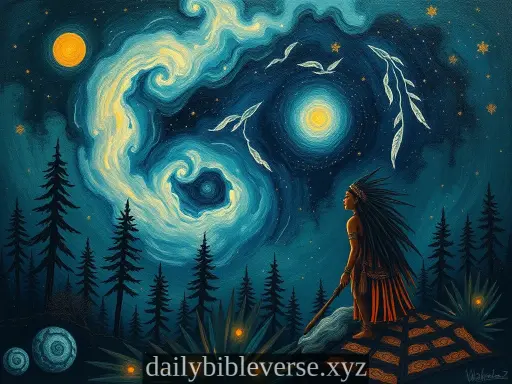Esther 9:20-22 The Power of Influence
Esther 9:20-22: The Power of Influence
Esther 9:20-22 (NIV)
“Mordecai recorded these events and sent letters to all the Jews throughout the provinces of King Xerxes, near and far, to have them celebrate annually the fourteenth and fifteenth days of the month of Adar as the time when the Jews got relief from their enemies, and as the month when their sorrow was turned into joy and their mourning into a day of celebration. He wrote them to observe the days as days of feasting and joy and giving presents of food to one another and gifts to the poor.”
Verse Exploration
The verses in Esther 9:20-22 highlight a profound moment of celebration and influence within the Jewish community.
After facing imminent destruction, the Jews were liberated due to the strategic actions and faith of Mordecai and Esther.
These verses illuminate the significance of remembrance and communal celebration in the face of adversity.
Mordecai encourages the Jews to transform a moment of sorrow and fear into a time of joy and festivity, establishing the festival of Purim as a lasting tradition.
This theme resonates today as many individuals grapple with personal challenges.
In a world rife with chaos and uncertainty, celebrating small victories can infuse hope and reinforce community bonds.
Transforming grief into gratitude serves as a powerful reminder of resilience, enabling us to influence not only our perspectives but also the lives of those around us.
In contemporary society, this transformation from mourning to joy speaks to our innate desire to overcome difficulties and promote unity amidst diversity.
Whether it’s through holidays, anniversaries, or personal milestones, these observations help foster connections and hope within our communities.
Personal Connection Story Sharing
Reflecting on the theme of influence, I recall a challenging period in my life when I was overwhelmed by worries about my career and future.
I was at a crossroads, unsure of which path to take.
The days felt long and heavy, akin to the sorrow the Jews experienced before their liberation.
During this time, I attended my church’s annual retreat, where the focus was on celebrating our blessings and God’s providence.
Though I arrived with doubts, I left with a renewed sense of purpose.
Sharing stories with my fellow attendees, I realized how many of us faced similar struggles yet found strength in each other’s journey.
Faith was the anchor that transformed our uncertainty into hope, reminiscent of how Mordecai encouraged the Jews to celebrate their deliverance.
Finding clarity through shared experiences allowed me to influence others positively.
Exposure to these narratives helped foster a strong sense of community, deepening my faith and encouraging me to continue influencing those around me.
This Thanksgiving season has since become a corner of joy in my life, where we all share food — just as Mordecai instructed — bearing witness to our own powerful transformations.
In our endeavors to celebrate life’s victories, we identify with Mordecai’s call for joy and community, amplifying our influence in the lives of those we love.
Historical Context
The Book of Esther unfolds against the backdrop of Persian captivity around the 5th century BCE.
King Xerxes ruled, and the Jews found themselves under threat from Haman, who sought their annihilation.
The text tells of the faith and bravery of Esther, a Jewish queen who revealed her identity and pleaded for her people’s safety.
When the tide turned in favor of the Jews, it was not only a moment of personal salvation but a pivotal cultural shift.
Mordecai’s instructions to commemorate this victory chronicle the resilience of a people previously facing despair.
The festival of Purim serves as symbolic resistance against oppression.
Much like the resilience and activism seen in contemporary social movements, the Jews of Esther’s time exemplified empowerment found through action and communal support.
In a time when modern society grapples with discrimination and injustice, the historical context underscores the enduring strength of unity and the necessity of collective influence to combat adversities.
Thematic Elements
Numerous themes are woven through Esther 9:20-22 that can be identified, including resilience, identity, community, and celebration.
These elements resonate deeply in both historical and contemporary life, offering a rich layer of meaning.
Resilience is illustrated through the transition from a potential massacre to joy and feasting.
Just as the Jews learned to assert their identity amidst danger, individuals today search for their sense of belonging and purpose.
Community plays a critical role in these verses as Mordecai emphasizes mutual support, urging people to come together.
In modern society, where estrangement from community can lead to isolation, these principles become ever more relevant.
Celebration of life’s victories, even those arising from pain or difficulty, underscores the need for perspective.
By navigating adversity with a spirit of gratitude, we reflect God’s grace in our struggles.
The themes present in these verses serve not just as historical markers but as guiding principles, helping us manifest our influences and impacts on one another’s lives in present times.
Literary Analysis
The literary style of Esther employs vivid imagery that illustrates the transformative power of environment and emotions.
Expressions of sorrow are contrasted with themes of joy, as seen through Mordecai’s letters to the Jewish people.
Metaphors used in declaring joyous times can inspire us to see our own stories in light of hope and beauty.
Mordecai’s directives – to celebrate, feast, and give presents – immediately evoke strong sensory imagery, enhancing the passage’s emotional significance.
Imagining the joy the Jews experienced amid their relief draws us into a narrative of shared humanity.
This literary craftsmanship encourages us to apply these principles in our daily experiences, inviting us to deliberately create spaces for grace and gratitude.
Through rich imagery, we can resonate with the message of Esther, allowing it to redefine our lives irrespective of our backgrounds or struggles.
Related Scriptures
Psalm 30:11-12
“You turned my wailing into dancing; you removed my sackcloth and clothed me with joy, that my heart may sing your praises and not be silent. Lord my God, I will praise you forever.”
Connection:
These verses encapsulate the transformation from sorrow to joy, paralleling Esther’s celebration of deliverance.
Relevance:
This reminds us of God’s ability to turn hardship into praise, encouraging individuals to maintain hope.
Romans 12:15
“Rejoice with those who rejoice; mourn with those who mourn.”
Connection:
This passage emphasizes the importance of community, echoing Mordecai’s call for collective celebration and support.
Relevance:
Active participation in others’ joys and burdens fosters deeper connections, which are vital for personal growth.
Isaiah 61:3
“…and provide for those who grieve in Zion—to bestow on them a crown of beauty instead of ashes, the oil of joy instead of mourning, and a garment of praise instead of a spirit of despair.”
Connection:
Isaiah resonates deeply with the themes in Esther by illustrating God’s promise to transform mourning into joy.
Relevance:
This passage encourages us to seek joy and beauty amidst life’s ashes and losses.
Philippians 4:4
“Rejoice in the Lord always. I will say it again: Rejoice!”
Connection:
This call to rejoice mirrors Mordecai’s instructions to celebrate and uplift one another in a community.
Relevance:
This verse serves as a daily reminder of the joy found in faith, influencing our daily lives positively.
2 Corinthians 1:4
“Who comforts us in all our troubles, so that we can comfort those in any trouble.”
Connection:
Similar to Esther’s influence, this scripture emphasizes the ripple effect of shared experiences for collective healing.
Relevance:
Encouraging comfort among friends strengthens community bonds and reinforces the power of influence.
Practical Application
Actionable insights from Esther 9:20-22 can enrich our lives immensely:
Empowering ourselves and others helps scaffold community spirit and support.
Encouragement and Hope
As you explore the profound message found in Esther 9:20-22, remember that influences can shape not only our lives but the lives of those around us.
Through celebrating our truths and forging connections, we foster an environment filled with hope and resilience.
In a world that often feels divided, your light can lead the way towards a brighter future filled with shared joys and strength, just as Mordecai’s leadership influenced a nation.
Trust in God’s presence, and lean on your faith to navigate through adversity with courage and optimism.
Recalling the promise of joy endured through pain can open new doors of possibility, connecting us to a greater purpose that extends beyond ourselves.
Engagement Activity
For an engaging reflective exercise, consider journaling your thoughts on the following prompt:
“How can I influence my immediate community positively?”
Reflect on ways you can create gatherings or initiatives that promote joy similar to the celebrations established in the Book of Esther.
Share your insights with those around you, fostering collaboration and inspiration.
Invite discussion about meaningful celebrations that can be established in your community, echoing the same heart of remembrance and unity.
Closing Prayer
Heavenly Father, we thank You for the gift of influence, as seen through Mordecai’s leadership.
Help us embrace our shared stories, transforming sorrow into joy and empowering us to uplift others.
Guide us in our journey of faith, leading us to celebrate Your goodness in our lives and fostering a spirit of community and love.
Amen.






